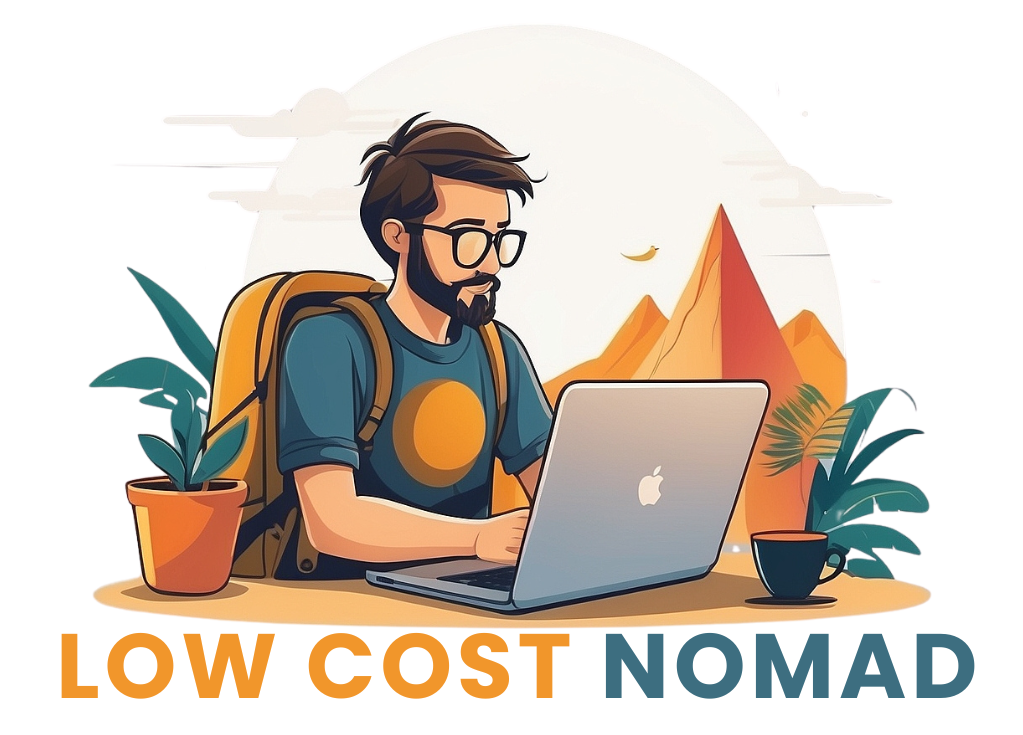Digital Nomad Life: What Does a Digital Nomad Do?
Have you ever dreamed of working from anywhere in the world? Imagine running your business from a beach in Thailand, writing code in a cafe in Portugal, or teaching online English lessons while living in Mexico. This isn’t just a fantasy for a growing number of people; it’s their reality. These individuals are known as digital nomads. But what exactly does a digital nomad do? It’s more than just traveling and working. It’s a lifestyle that blends location independence with earning a living using technology. This article will explore the world of digital nomads, looking at how they work, where they live, what their daily life is like, and the unique challenges and rewards they face.
Defining the Digital Nomad: More Than Just Remote Work
Before diving into what a digital nomad does, let’s first understand what the term means. At its core, a digital nomad is someone who uses telecommunications technologies to earn a living and, more generally, conduct their life in a nomadic manner. This means they are not tied to one specific place for work. Unlike someone who simply works remotely from their home city, digital nomads frequently travel and change locations. Their ‘office’ can be anywhere with a reliable internet connection – a cafe, a co-working space, a library, an RV, or even a temporary home in a different country.
Think of it this way: a traditional worker goes to the same office every day. A remote worker might work from their home every day in the same city. A digital nomad works from *different* places, sometimes staying for a few weeks or months before moving on. The ‘digital’ part is key; their work is done online, allowing for this freedom of movement. They are location independent workers.
How Digital Nomads Earn Money: The Work Behind the Travel
One of the most common questions about this lifestyle is: how do digital nomads make money? The answer is that they do a wide variety of jobs, but they all have one thing in common: the work can be performed entirely online or doesn’t require their physical presence in a specific office or location long-term. Here are some of the main ways digital nomads earn their income:
Freelancing: Offering Skills to Clients Worldwide
Many digital nomads are freelancers. This means they offer their skills and services to different clients on a project basis. Freelancing provides flexibility and allows them to work for multiple clients, reducing dependence on a single employer. Common freelance jobs include:
- Writing and Editing: Creating blog posts, articles, website content, marketing copy, or editing books and papers.
- Graphic Design: Designing logos, websites, marketing materials, or illustrations for businesses and individuals.
- Web Development and Programming: Building and maintaining websites, creating software applications, or coding for various projects.
- Social Media Management: Managing social media accounts for businesses, creating content, and engaging with followers.
- Virtual Assistant Services: Providing administrative, technical, or creative help to clients remotely. This could involve scheduling, email management, research, or data entry.
- Online Marketing and SEO: Helping businesses improve their online visibility through search engine optimization, content marketing, or paid advertising.
- Consulting: Offering expert advice in areas like business strategy, marketing, or technology to clients remotely.
Freelancing requires self-discipline and the ability to find clients, often through online platforms or networking.
Running Online Businesses: Being Your Own Boss
Another popular path for digital nomads is to start and run their own businesses that operate primarily online. This gives them ultimate control over their work, income, and schedule. Examples include:
- E-commerce Stores: Selling physical products online through platforms like Shopify or Etsy, often using dropshipping or print-on-demand models that don’t require managing inventory themselves.
- Blogging or Content Creation: Earning money through advertising, affiliate marketing (promoting other people’s products), selling their own digital products (like e-books or courses), or sponsorships.
- Online Course Creation: Teaching skills or knowledge by creating and selling online courses on platforms like Teachable or Udemy.
- Software as a Service (SaaS): Developing and selling access to software applications or online tools.
- Affiliate Marketing: Building websites or content that reviews and recommends products, earning a commission when people buy through their links.
Starting an online business often requires an initial investment of time and sometimes money, but it can offer significant freedom and income potential once established.
Remote Employees: Working for a Company, But Not in the Office
Not all digital nomads are freelancers or entrepreneurs. Many are full-time employees of companies that allow them to work remotely. The key difference for a digital nomad employee is that the company permits them to work from *anywhere*, not just from their home in a specific city. These jobs are becoming more common as companies become more comfortable with remote work arrangements.
Remote employee roles can be in almost any field that doesn’t require a physical presence. Common examples include:
- Software Engineers
- Customer Support Representatives
- Project Managers
- Digital Marketers
- Data Analysts
- Technical Writers
- HR Professionals (for remote teams)
Working as a remote employee can offer more stability in terms of income and benefits compared to freelancing, while still providing the location independence desired by a digital nomad.
Other Income Streams: Diversifying Earnings
Some digital nomads also generate income through other means, such as:
- Online Tutoring or Teaching: Teaching languages, subjects, or skills online via video calls.
- Selling Photos or Videos: Licensing photography or videography through stock media websites.
- Investing: Managing investments online.
Often, successful digital nomads have multiple income streams to provide financial security and flexibility.
Where Digital Nomads Live and Work: The ‘Nomad’ Part in Action
The “nomad” aspect is what truly defines this lifestyle beyond just remote work. Digital nomads are constantly on the move, experiencing different places. Their work setup is mobile, relying on laptops, smartphones, and the internet.
Their choice of location depends on many factors, including:
- Cost of Living: Many digital nomads choose countries where their income goes further than in their home country.
- Internet Reliability: A stable and fast internet connection is crucial for their work.
- Visa Requirements: Understanding visa rules and how long they can legally stay in a country is essential. Some countries are even starting to offer specific “digital nomad visas.”
- Safety and Stability: Personal safety and political stability are important considerations.
- Community: Access to other digital nomads or expatriates can help combat loneliness and provide networking opportunities.
- Lifestyle and Interests: Proximity to beaches, mountains, cultural sites, or specific hobbies influences their choice.
Popular destinations for digital nomads often include cities in Southeast Asia (like Chiang Mai, Bali), Europe (like Lisbon, Budapest, Barcelona), and Latin America (like Medellín, Mexico City). These places often offer a good balance of affordable living, internet infrastructure, and a welcoming atmosphere.
They don’t always stay in one place for long. Some might spend just a few weeks in a city, while others practice “slow travel,” staying for several months to really get to know the area. Their workspace varies depending on the location and their preference:
- Cafes: A common, flexible option, though can be noisy and internet might be inconsistent.
- Co-working Spaces: Dedicated spaces designed for remote workers, offering reliable internet, comfortable desks, meeting rooms, and a sense of community.
- Temporary Rentals: Working from their rented apartment or house via platforms like Airbnb or longer-term local rentals.
- Libraries or Public Spaces: Quiet environments sometimes available, though internet access can vary.
The ability to work from almost anywhere with internet access is the freedom that defines the digital nomad lifestyle.
The Daily Life of a Digital Nomad: Balancing Work and Exploration
What does a typical day look like for a digital nomad? There’s no single answer, as routines vary greatly depending on their work, personality, and location. However, they all face the challenge of balancing work responsibilities with the desire to explore and enjoy their surroundings.
Some digital nomads try to maintain a strict work schedule, similar to a 9-to-5 job, often working during their clients’ business hours (which might mean adjusting to different time zones). Others prefer a more flexible approach, working in bursts when they feel productive, or scheduling work around activities like exploring a new city or attending local events.
A common routine might involve:
- Waking up and checking emails or urgent tasks.
- Finding a place to work for the day (a cafe, co-working space, or home office).
- Focusing on work for several hours, perhaps with breaks for food or stretching.
- In the afternoon or evening, exploring the local area, visiting sights, trying new food, or meeting up with other nomads or locals.
- Sometimes, doing more work in the evening if needed, especially if working across time zones.
Managing time zones is a significant part of a digital nomad’s life, especially if they have clients or teams in different parts of the world. This can mean early morning calls or late-night work sessions.
Maintaining a sense of routine and discipline is crucial for productivity, but the flexibility to break from that routine is also a major draw of the lifestyle. They need to be adaptable and good at managing their own time without direct supervision.
Challenges and Downsides of Being a Digital Nomad
While the digital nomad life sounds exciting, it’s not without its difficulties. The romanticized image often hides practical challenges that require careful planning and resilience.
Some of the major challenges include:
- Loneliness and Isolation: Constantly moving can make it hard to build deep, long-lasting relationships. Leaving friends and family behind and frequently saying goodbye to new acquaintances can be emotionally draining.
- Finding Stable Income: Especially for freelancers or entrepreneurs, income can be unpredictable. There can be periods where finding new clients or generating sales is difficult.
- Visa and Legal Issues: Navigating complex visa regulations in different countries can be stressful and time-consuming. Overstaying a visa can lead to serious problems. Tax obligations can also be complicated when earning money while moving between jurisdictions.
- Healthcare and Insurance: Accessing reliable and affordable healthcare while constantly traveling is a major concern. Finding suitable travel insurance that covers their needs for extended periods can be challenging.
- Lack of Routine and Structure: While flexibility is a benefit, too much unstructured time can lead to procrastination, reduced productivity, and a feeling of being unmoored.
- Internet Reliability: Even in popular nomad hubs, internet can be slow, unreliable, or expensive in certain areas. This can directly impact their ability to work.
- Burnout: Trying to balance work, travel, social life, and dealing with the logistics of constant movement can lead to exhaustion.
- Difficulty Separating Work and Life: When your ‘office’ is also your temporary home or a fun cafe, it can be hard to switch off and truly relax.
- Cultural and Language Barriers: Moving to countries with different cultures and languages can be challenging initially, requiring adaptation and learning.
These challenges highlight that the digital nomad life requires not just professional skills but also a strong degree of independence, adaptability, problem-solving abilities, and mental resilience.
The Benefits of the Digital Nomad Lifestyle
Despite the challenges, the reasons why people choose and love the digital nomad life are powerful and numerous:
- Freedom and Flexibility: This is arguably the biggest draw. Digital nomads have control over their schedule, location, and often the type of work they do. They can decide when to work, where to work from, and where to travel next.
- Travel and Exploration: They get to see the world, experience different cultures firsthand, and visit places they’ve only dreamed of.
- Lower Cost of Living: By choosing to live in countries where the cost of living is significantly lower than their home country, digital nomads can stretch their income further, save money, or live a higher quality of life than they could afford back home.
- Personal and Professional Growth: Navigating new environments, cultures, and challenges fosters independence, resilience, and problem-solving skills. They also often learn new skills related to their work or business.
- Meeting New People: The lifestyle offers opportunities to meet interesting people from all over the world, including other nomads, expats, and locals, leading to diverse friendships and networking.
- Escape from the Traditional Rat Race: Many are looking for an alternative to the typical 9-to-5 office job, the daily commute, and the feeling of being stuck in one place.
- Better Work-Life Balance (Potentially): While challenging to manage, the flexibility can allow for integrating personal passions and travel experiences into their daily or weekly routine in ways traditional jobs don’t allow.
- Learning New Skills: Adapting to different living and working environments, managing finances across currencies, and handling international logistics require continuous learning.
For those who thrive on independence, adventure, and change, the benefits often outweigh the difficulties.
Is the Digital Nomad Life Right for You?
Considering becoming a digital nomad requires careful thought. It’s not a one-size-fits-all lifestyle. Here are some questions to ask yourself:
- Are you comfortable with uncertainty and change?
- Are you highly self-motivated and disciplined?
- Can you work effectively without constant supervision?
- Are you good at managing your finances, including saving and budgeting?
- Can you handle being away from friends and family for extended periods?
- Are you adaptable to new cultures and environments?
- Do you have skills or can you develop skills that are in demand for remote work?
Having a solid plan for how you will earn money is the most critical first step. Building up savings to cover initial costs and potential dry spells is also highly recommended. Researching potential destinations, understanding visa requirements, and looking into international health insurance are practical necessities.
Conclusion
So, what does a digital nomad do? They leverage technology to work remotely and travel the world, blending their professional lives with exploring new places and cultures. They are freelancers, online entrepreneurs, or remote employees who have chosen a location-independent lifestyle. Their work might involve coding from a co-working space in Medellín, writing marketing copy from a cafe in Lisbon, managing social media from a beach bungalow in Bali, or teaching online from a mountain town in Bulgaria.
The life of a digital nomad is not a permanent vacation; it requires hard work, discipline, and the ability to overcome challenges like isolation, unstable income, and logistical hurdles. However, for those who value freedom, adventure, and personal growth, the rewards of experiencing the world while building a career on their own terms can be immense.
Becoming a digital nomad is a significant life change that requires careful planning and preparation. But for the right person, it offers a unique and fulfilling way to live and work in the modern world.




